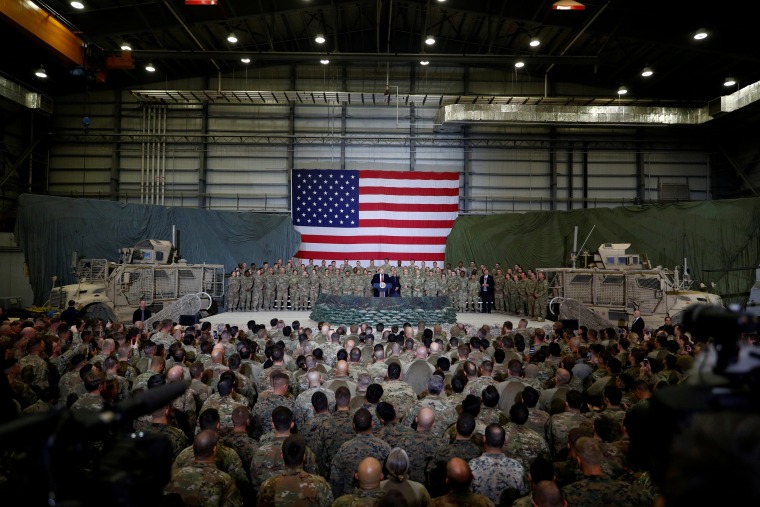WASHINGTON — The White House and top National Security Council officials learned about intelligence indicating Russia was offering bounties on U.S. and coalition troops in early 2019, a person with direct knowledge of the intelligence confirms to NBC News, well over a year before President Donald Trump said no one had briefed him about the matter.
That intelligence, which the Trump administration has yet to act on, “was out there” at least a month before an April 2019 car bomb attack in Afghanistan that killed three U.S. Marines, the individual said. That attack has come under scrutiny as U.S. officials seek to determine whether any Americans died as a result of the Russian plot.
Two senior administration officials told NBC News on Monday that the White House does not believe there is a link between the deaths of the three Marines in April 2019 and Russia’s offer to pay bounties. Rep. Michael McCaul, R-Texas, said that top officials told lawmakers in the Situation Room on Monday that “no one had been killed” as a result of Russia’s bounty offer. But other U.S. officials have said it’s unclear or that the Russian effort may indeed have led to deaths.
The Associated Press first reported late Monday that the White House was aware of the intelligence in early 2019, and added that John Bolton, Trump’s national security adviser at the time, told colleagues he briefed Trump about the intelligence in March 2019.
NBC News has not confirmed whether Bolton briefed Trump on the matter. The former national security adviser declined to comment Tuesday, citing classification issues, when asked in multiple interviews promoting his book about the president’s handling of national security matters during Bolton's 17 months in the White House.
The revelation that the White House learned of the intelligence well over a year ago comes as the Trump administration seeks to distance the president from the explosive allegation by insisting he was never briefed on it because it hadn’t been fully verified by the intelligence community.
In a series of public statements issued in quick succession late Monday, the Pentagon said it has “no corroborating evidence to validate the recent allegations,” while National Security Adviser Robert O’Brien said that because those allegations “have not been verified or substantiated by the Intelligence Community, President Trump had not been briefed on the items.”
CIA Director Gina Haspel echoed those sentiments and downplayed the alleged attempt by a U.S. adversary to harm U.S. troops as “a constant, long-standing concern.”
Both Haspel and O’Brien sought to refocus the conversation on the risk to U.S. national security they warned could result from the unauthorized disclosure of U.S. intelligence, which first emerged late last week in a New York Times report, triggering immediate alarm and demands for more information from lawmakers of both parties.
The April 2019 attack under scrutiny for potential ties to Russian bounty offers occurred near Afghanistan's Bagram Airfield and killed the three U.S. Marines, including a New York firefighter, when the roadside car bomb struck the U.S. convoy. At the time, there was significant confusion over the events that unfolded, with U.S. officials originally saying an Afghan citizen who was a contractor for the U.S. had also been killed. He was later found injured but alive.


